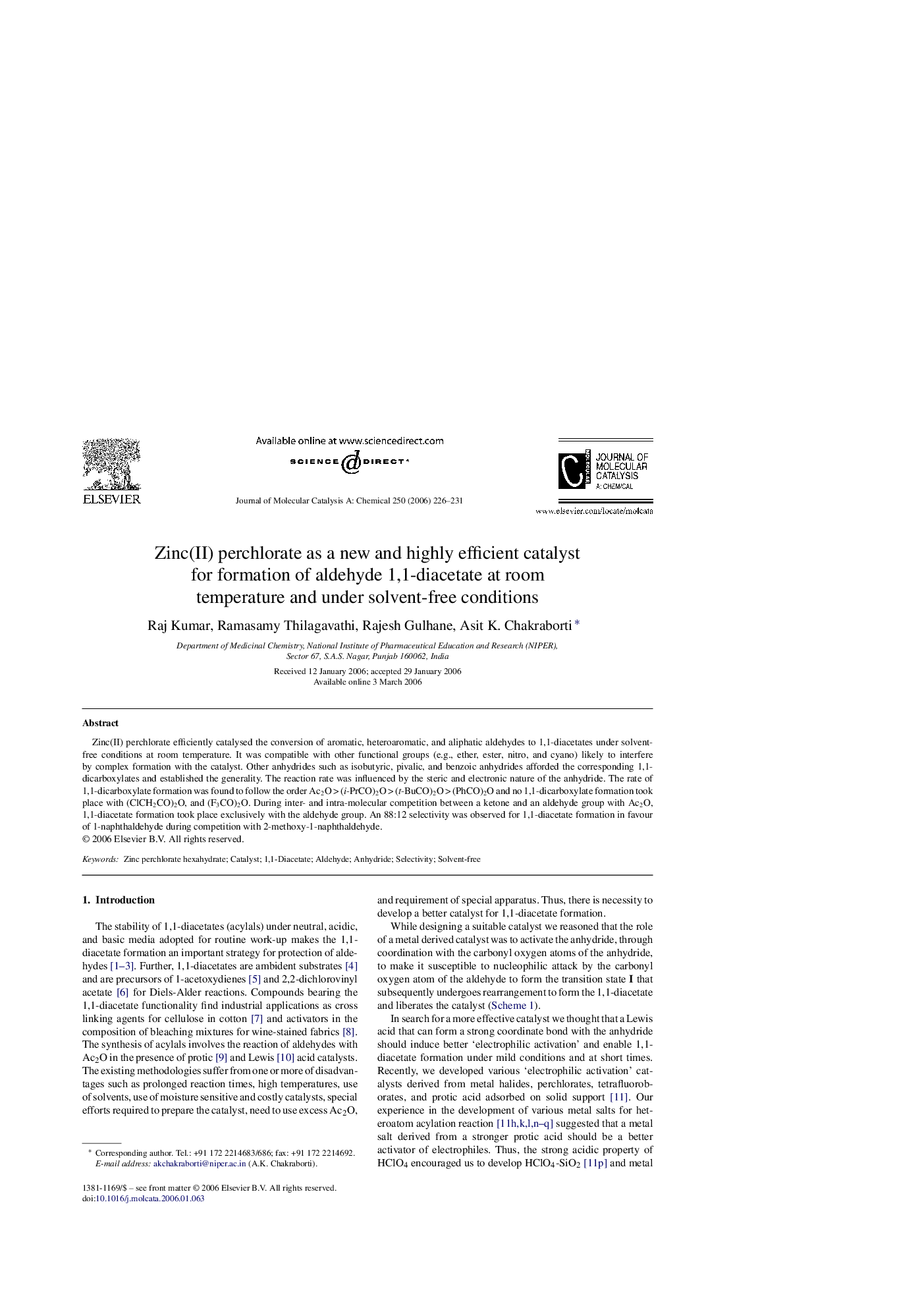| کد مقاله | کد نشریه | سال انتشار | مقاله انگلیسی | نسخه تمام متن |
|---|---|---|---|---|
| 68736 | 48521 | 2006 | 6 صفحه PDF | دانلود رایگان |

Zinc(II) perchlorate efficiently catalysed the conversion of aromatic, heteroaromatic, and aliphatic aldehydes to 1,1-diacetates under solvent-free conditions at room temperature. It was compatible with other functional groups (e.g., ether, ester, nitro, and cyano) likely to interfere by complex formation with the catalyst. Other anhydrides such as isobutyric, pivalic, and benzoic anhydrides afforded the corresponding 1,1-dicarboxylates and established the generality. The reaction rate was influenced by the steric and electronic nature of the anhydride. The rate of 1,1-dicarboxylate formation was found to follow the order Ac2O > (i-PrCO)2O > (t-BuCO)2O > (PhCO)2O and no 1,1-dicarboxylate formation took place with (ClCH2CO)2O, and (F3CO)2O. During inter- and intra-molecular competition between a ketone and an aldehyde group with Ac2O, 1,1-diacetate formation took place exclusively with the aldehyde group. An 88:12 selectivity was observed for 1,1-diacetate formation in favour of 1-naphthaldehyde during competition with 2-methoxy-1-naphthaldehyde.
Zinc(II) perchlorate catalyses the formation of aldehyde-1,1-dicarboxylates in high yields at room temperature under solvent-free conditions in short times. Figure optionsDownload as PowerPoint slide
Journal: Journal of Molecular Catalysis A: Chemical - Volume 250, Issues 1–2, 2 May 2006, Pages 226–231